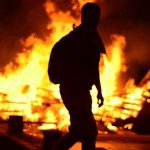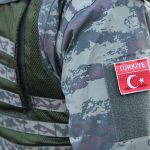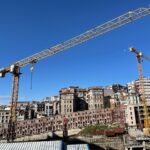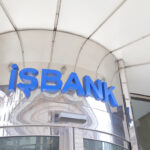March 20, 2023
By David L. Phillips
TDP Advisory Board Member and Director of the Program on Peacebuilding and Human Rights at Columbia University’s Institute for the Study of Human Rights David L. Phillips has written the following comprehensive analysis of the 2023 Turkish Presidential Election, originally published here.
Background
Turkey’s President Recep Tayyip Erdogan is seeking a third consecutive term in office when voters go to the polls on May 14, 2023. Erdogan has been in power for 20 years, as prime minister from 2003-2014 and then as president. His initial reforms sought to advance Turkey’s membership negotiations with the European Union (EU), but Erdogan has since overseen considerable democratic backsliding. Erdogan cracked down on dissent, stifled the media, and dismantled democratic institutions after the alleged coup in July 2016. Economic problems and widespread corruption have defined the Turkish president’s rule.
Issues
Turks are exhausted. They are tired of the constant drama, as the country veers from crisis to crisis. Five flash-point issues galvanize the opposition.
Economic Distress
Turkey was once heralded as a leading emerging economy. Today, it is on the brink of economic collapse. Turkey’s staggering inflation rate is at least 80% annually, which represents a 20-year high. Food prices and commodity prices have skyrocketed. Turkey faces a currency crisis. The value of the Turkish lira has plummeted from 3.7 Turkish lira to one US dollar in 2017, to 19 Lira to one US dollar in 2023. With more than 300,000 people leaving the country every year, Turkey is suffering a brain drain. The country also faces a balance of payments crisis, making it unable to redeem foreign currency debts and pay for imported goods. Businesses that borrowed at lower rates are now unable to service their debt and face bankruptcy. The current account deficit is exacerbated by the government’s macroeconomic policy. Flouting economic orthodoxy, Erdogan lowered interest rates at a time when a rate hike would more effectively have addressed the country’s economic woes. Instead, Erdogan fired three central bank governors for opposing his policies. According to the UN, Turkey’s economic challenges are compounded by widespread devastation from the earthquake on February 6, 2023, with reconstruction costs exceeding $100 billion.
Earthquake Mismanagement
More than 47,000 perished in Turkey’s 7.8 magnitude earthquake. Turkey’s strong state, lauded by Erdogan, proved inept at coping with the civil emergency. The government was unprepared. Rescue workers were slow to reach the scene. When they arrived, they lacked suitable equipment to identify and extract victims. The tremor hit a known earthquake zone. However, the government had failed to preposition tents, blankets, food, and water. The government had also ignored stringent construction standards that were implemented after the 1999 earthquake. In 2018, Erdogan adopted—and boasted about—an amnesty for construction companies so that safety standards would not affect the country’s economic development. Turkey is currently investigating about 400 contractors and has arrested 120. This roundup is a thinly disguised effort to deflect blame by scapegoating lower-level project managers, rather than the owners of the large construction conglomerates that have contributed financially to Erdogan’s Justice and Development Party (AKP). The government’s response has been lethargic, ineffective, and self-serving.
Seismologists warn that the next big quake could occur in Istanbul, a city of nearly 16 million. Most of the city’s new construction started in the 1990s when Erdogan was mayor. As in Hatay province, where the February earthquake hit, construction companies contributed to the AKP to expedite approvals for their projects. Cutting corners led to shoddy construction and could give rise to many questions about Erdogan’s stewardship of Istanbul during the construction boom.
The Coup
Erdogan welcomed the so-called coup of 2016, as a “gift from God” that provided “justification” to declare a national emergency that gave the president unprecedented power. He turned Turkey into a gulag, imprisoning his critics and political opponents. Within a year of the coup, more than 110,000 people were detained, and nearly 50,000 were charged with specific crimes. Article 8 of the Anti-Terror Act and Article 130 of the Penal Code were used to suppress freedom of expression and target political opponents for “insulting Turkishness.” More than 1,000 members of the police and thousands of army members were arrested for allegedly participating in the coup. Two hundred judges, including members of the Supreme Court, were detained. The crackdown also extended to media organizations. Turkish authorities arrested hundreds of journalists, confiscated the passports of media representatives, and censored the internet and social networks. Turkish intellectuals fled the country, with 21,000 Turkish nationals receiving asylum or refugee status in Germany alone.
Consolidation of Presidential Power
Less than a year after the alleged coup, Erdogan held a referendum to authorize his plan to transform Turkey’s parliamentary democracy into an executive presidency. He claimed that 51.3% of voters backed the new constitution, which granted sweeping powers to the president, allowed the president to appoint ministers, senior government officials, and half the members of Turkey’s highest judicial body, as well as to issue decrees and declare states of emergency. The Republican People’s Party (CHP) and the pro-Kurdish People’s Democratic Party (HDP) alleged fraud and challenged the tally. They warned that changes to the constitution would lead to autocratic one-man rule, ensuring that the 63-year-old Erdogan could govern until 2029 with few checks and balances.
Kurdish Peace
Turkey’s approach to the Kurdish issue has been marked by sustained repression against the Kurdish community. Legal measures exclude Kurds from democratic politics and ban pro-Kurdish parties. Pro-Kurdish supporters, civil leaders, and politicians are subject to arrest, arbitrary detention, torture, and extrajudicial killings. The conflict between the state and the Kurdistan Workers Party (PKK), an armed insurgency seeking greater political and cultural rights within Turkey, started in the mid-1980s, resulting in the deaths of 40,000. Political and ethnic conflict persisted except for a brief respite in 2013-2015, which coincided with talks between Turkey and the PKK. The Turkish Armed Forces conduct an offensive each Spring to hunt the PKK in the remote, rugged terrain where Turkey, Iraq, and Iran are contiguous. Erdogan’s foreign ventures are costly and a further drag on the economy. Though the PKK announced a unilateral ceasefire after the earthquake in February, Erdogan may launch a more intensive cross-border operation this Spring to try and provoke a response by the PKK, stirring nationalist sentiment among Turkish voters.
The Opposition
Erdogan is opposed this year by a coalition of parties. The “Table of Six” includes the Republican People’s Party (CHP) headed by Kemal Kilicdaroglu, the nationalist Good Party (IYI) of Meral Aksener, the conservative Felicity Party of Temel Karamollaoglu, the Democrat Party of Gultekin Uysal, the Democracy and Progress Party led by Ali Babacan, and the Future Party chaired by Ahmet Davutoglu. Parties in the Table of Six are united by convenience, not ideological commitment. They have little in common in terms of their political views apart from their desire to oust Erdogan.
Fissures surfaced in March 2023 when leaders bickered over the selection of a consensus candidate for president. Aksener temporarily left the coalition over Kilicdaroglu’s likely nomination stating, “[It] has lost the ability to represent the will of the nation.” Aksener expressed her preference for Ankara Mayor Mansur Yavaş or Ekrem Imamoglu, the dynamic mayor of Istanbul. The CHP’s Kilicdaroglu, a 74-year- old former bureaucrat, called “Turkey’s Gandhi ” for his staid and stoic demeanor, was finally designated to oppose Erdogan. Aksener returned to the coalition with the understanding that Kilicdaroglu would include Yavas and Imamoglu as running mates.
The People’s Democratic Party
The People’s Democratic Party (HDP) is conspicuously absent from the coalition. Aksener and other nationalist politicians fear that its participation could alienate mainstream Turkish voters. However, there are about 20 million Kurds in Turkey, putting the HDP in a “kingmaker” position to shape the future of Turkish politics.
Erdogan has sought to marginalize the HDP’s electoral appeal. Co-chairs Selahattin Demirtas, Figen Yuksekdag, and ten HDP Members of parliament were arrested in November 2016. They still languish in prison. Every HDP member in the Turkish Parliament is under criminal investigation. Two MPs elected in 2018 have already been stripped of their seats and imprisoned. Of 65 municipalities won by the HDP in the 2019 local elections, the government has replaced all but six with state-appointed “trustees”. Indiscriminate attacks by government forces on Kurdish-majority cities like Sur, Nusaybin, and Cizre have laid waste to urban centers and displaced up to half a million people.
A case was opened by the Turkish judiciary alleging the HDP’s support for terrorism in March 2021. Though the closure case remains active and the party could be shut down at any time, the HDP changed its name to the “Green Left Party” to avoid legal action. Banning the party could be a double-edged sword. It would inspire Erdogan’s nationalist base, driving voter turnout. But it could also motivate the country’s Kurds to vote in greater numbers backing parties other than the AKP.
The HDP practices a different brand of politics different from the AKP and other Turkish parties. Defined by its policies rather than personalities, the HDP’s platform endorses strengthening the capacity of local government through decentralization (i.e. “democratic federalism”). It supports the resumption of talks with the government, which would lead to a resolution of Turkey’s Kurdish question through dialogue rather than armed conflict.
The HDP opposes Turkey’s sweeping anti-terrorism legislation, which is used to prohibit dissent and criticism. It challenges restrictions on Kurdish rights and identity, including prohibitions on the use of non-Turkish languages in education, politics, and public administration. It opposes the definition of the “Turkish nation” in the constitution, which conflates national identity with Turkish ethnicity. The HDP insists that national identity must be based on the principles of a multiethnic and democratic society. It maintains that the 1982 military constitution gives too much power to the central government and supports reforms in accordance with the European Charter on Local Self-Government, ratified by Turkey in 1992. By contrast, the majority of Turks reflexively oppose decentralization. From the 1920 Sevres Treaty, they believe that Western Powers are trying to dismember and diminish Turkey (i.e., “Sevres Syndrome”).
Still, the HDP demonstrated broad popular appeal in the national elections of 2015. Presenting itself as “the party of all oppressed and exploited,” the HDP’s progressive platform appealed to many Turks by calling for worker’s rights, women’s equality, the protection of the environment, an end to LGBTQ discrimination, and a foreign policy based on the Ataturk principle of “Peace at Home – Peace abroad”. In 2015, the HDP was the first pro-Kurdish party to contest parliamentary elections as a party, rather than as part of an alliance or bloc of independent candidates. It garnered more than 6 million votes, which represented 13% of votes nationwide, surpassing the 10% electoral threshold. With 80 seats in the Turkish Grand National Assembly, the HDP became the second-largest opposition party. For the first time since 2002, the AKP lacked enough seats to form a government on its own and entered into a coalition with the right-wing National Movement Party of Devlet Bahceli.
Though the HDP did not field a candidate in Istanbul’s 2019 mayoral election, its support was critical to the victory of CHP’s Ekrem Imamoglu over the AKP Vice President Binali Yildirim. Refusing to accept defeat, Erdogan cried foul and demanded a do-over. In the second round, Imamoglu increased his margin of victory from 13,000 to 800,000 votes, with a turnout of 84 percent of eligible voters. Losing Istanbul had far-reaching consequences for Erdogan. The AKP had relied on financing from Istanbul-based businesses that benefited from government contracts, and Imamoglu gained access to municipal records that documented waste and cronyism. The defeat was also symbolic. Erdogan launched his political career by winning Istanbul’s mayoral race in 1994; Istanbul’s municipal government remained under AKP control ever since.
The Platform
Erdogan sees himself as a great Turkish leader on par with Ataturk. He believes that winning the 2023 election would enshrine his legacy on the 100th anniversary of the founding of the Turkish Republic. However, public opinion surveys suggest that charisma is not enough. Voters want to support policies that address Turkey’s serious problems.
Recommendations
The opposition needs to make a clean break with the AKP, appealing to voters tired of Erdogan’s hubris and mismanagement.
Reform
The opposition should outline a plan to restore the parliamentary system and strip the powers of the president. Turkey can repair its tarnished record on human rights through reform of the constitution and penal code. Implementing decisions by the European Court of Human Rights and releasing Selahattin Demirtas and Osman Kavala, the human rights defender would be a step towards restoring its international reputation. Reforms could lead to the renewal of EU accession talks, suspended in 2018 over the country’s democratic backsliding and the politicization of its judiciary.
Kurdish Issues
The new government can advance conciliation by ending legal proceedings aimed at closing the HDP. It should resume talks with the PKK, welcoming international mediation from the US and the EU. Rather than rely on Erdogan or Hakan Fidan, head of Turkey’s National Intelligence Agency who previously directed negotiations, talks should be institutionalized. Cross-border operations targeting Kurds in Syria and Iraqi Kurdistan should cease.
NATO
Turkey should chart a pro-Western course, affirming its NATO obligations and support for Ukraine. The opposition should pledge to stop playing both sides, implement sanctions against Russia, and seize the assets of pro-Putin oligarchs currently sheltered in Turkey. Turkey can burnish its good name as a member of the Alliance by ending its threat to veto its membership application of Sweden. Further extending the Black Sea grain deal would also enhance Turkey’s diplomatic credentials.
Regional Issues
“Zero problems with neighbors” must have meaning. Turkey should convene a bilateral summit to finalize measures to improve relations with Greece. It should publicly call on Azerbaijan to open the Lachin corridor connecting Armenia to Nagorno-Karabakh and open its border with Armenia allowing unfettered travel and cross-border commercial trade. Turkey must stop instigating and supporting Azerbaijan’s aggression against Armenians lest it is implicated in a second Armenian Genocide.
(Note: These reforms are illustrative, not comprehensive. They are offered as confidence-building measures between Turkey and its citizens, between Turkey and its neighbors, and the Euro-Atlantic community).
Warning
Current polling shows Erdogan and the AKP trailing the opposition by about 10%. Though it will be difficult for Erdogan to overcome this deficit in a free and fair election, he has proven to be a formidable and resilient politician. Erdogan relies on a fervent base of nationalistic and religiously conservative supporters in the AKP strongholds of central Anatolia and Black Sea communities. Erdogan sets the standard among autocratic leaders worldwide who abuse their office, using politically motivated welfare schemes and construction projects to motivate supporters. Censorship in Turkey’s state-controlled media is pervasive. The bureaucratic system has been penetrated deeply by Erdogan and his AKP cronies. International and domestic election monitors are needed to document election irregularities and build a case about election fraud.
Erdogan will not willingly relinquish power when he loses. There is too much at stake for him, his family, and his cronies. Losing parliamentary immunity would open Erdogan to criminal prosecution for corruption and other crimes, so count on Erdogan to manipulate the tally. The AKP machine is so deeply embedded in society that it will be able to influence the conduct, counting, and certification of the election. Doctoring results can typically affect 3 to 4 percentage points. Regardless of the margin, Erdogan will likely claim fraud and reject the results if he loses.
Look for Erdogan to declare himself the winner and mobilize the street to enforce his declared outcome. The deep divide in Turkish society could result in civil strife and violent clashes between Erdogan’s supporters and pro-democratic factions. Only an overwhelming margin repudiating Erdogan can insulate Turkey from post-election violence.




